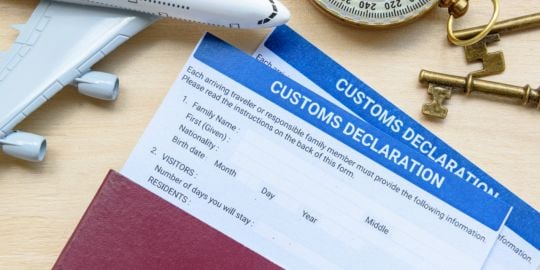Hi,
What do you think of the way people drive in Panama? How different is it from your home country?
Respecting the road safety rules, driving etiquette such as general courtesy, speed excess… what are the characteristics of the driving style in Panama?
Share with us the difficulties one may face when driving in Panama: peak hours, road conditions, accident, etc. and your advice to drive safely in the country.
Thank you in advance for participating,
Maximilien
Driving in Panama
It's all a state of mind. We realize this every time we shift to the States or back to Panama. You have to mentally shift gears and drive a completely different way, kicked back and go with the flow in the States... and alert, defensive and aggressive in Panama. Yes I said defensive AND aggressive! I use the phrase "expect the unexpected" when talking to people about driving the local streets and rural roads. ANYTHING can happen and from the most unexpected quarter, cars turning left in front of you from the right lane, a bus or taxi suddenly stopping in the traffic lane to let off a passenger, cars running stop signs and lights, motorcycles squeezing through impossible gaps, gaping holes in the pavement without warning. You have to be prepared for all of them ALL of the time. But at the same time you must be aggressive in your approach to the traffic... you can't sit by and wait for the right spot to open when merging into traffic or turning left. You have to make your own opening, otherwise everyone around WILL be pissed, and you will become another obstruction.
Most vehicles are in poor condition mechanically since the laws regarding inspections are never enforced and many vehicles are never registered to begin with. So beware of the fast moving truck which is barely under control by its driver and is about to become a major road hazard. This when you have to back off of your aggressive driving! There are a surprisingly low number of accidents, in my opinion, given the conditions and driving habits we see but that is largely because local drivers operate quite defensively. So adjust your state of mind and drive like a local!
Not sure what driving test they pass here in Panama, unlike our tests in North America. They do not use
indicators, they drive down the middle of the lanes. Can not drive very well when going through bends. Distracted driving is not really an issue as even the police are on their cell phones. All I can say is have your eyes in the back of your head at all times, espcecially in the City. Use Waze for navigation.I would not buy a new car here. Try not to be on the highway at night when all the drunk drivers are out and there are plenty
Other than that driving in Panama is fun
The majority of drivers in and around Panama City do not drive defensively and as a result endanger other drivers who do drive defensively. If one has to single out the aggressive, reckless, discourteous drivers who do not follow the rules of safe driving, top on the list would be the taxi drivers, followed by bus drivers and drivers under the age of 30. Truck drivers are not tooo far behind. An attitude and culture of driving have permeated the Panamanian psyche. Panamanian drivers pat themselves on their backs as one of the best drivers in the world -- pointing to the skills of being able to get in and out of traffic jams and to drive in tight spaces. However, their concept of good driving does not include defensive and intelligent driving. It has become customary for some drives to drive on the shoulders of the roads, cut in front of other drivers who dutifully stay in their lanes in traffic, disobey the few traffic lights and signs to control traffic, and even disobey the traffic police.
A solution to this problem would be for the police to better enforce the traffic rules and laws, establish more traffic lights and signs to control traffic, give out stiffer fines for those that violate the laws, and have stricter rules and processes for obtaining driving licenses. if these solutions are implemented, I believe we would have fewer accidents and less frustrated and stressful drivers in the city.
I'm not sure where in the States you have driven, but having lived all over, I have never experienced kicked back drivers going with the flow?
Driving in Panama is as challenging as any Central American country. In Panama City Yield and Stop signs are simply a suggestion. The elevated roadways have short curving entry and exit ramps making it hard to accelerate or slow down. In the more rural areas there is a general lack of information or street signs to the point you have to use a landmark to determine where you are. GPS are laughable usually showing just one major road and nothing else! Speed limits change rapidly and there are always speed trap officers in most every dinky town looking to shake down a foreigner. My recommendation is get a compact SUV with the most powerful engine available to get you in, out and around traffic and road hazards. It raises your seat and viewing height and handles the punishing pot hole, no foxholes, in the road. I had a mid size SUV but it was actually too big to be nimble and plagued with blind spots. The bigger or lower your vehicle it will require you to put your head on a swivel to cover traffic on all sides.
We experienced a ton of speed traps. We also had a tough time during rush hour in the poorer part of Panama City. If you stay on the Highways it is much better, however the Highway from Panama City to David was an experience. The road was so tore up and difficult for over 200 miles we almost turned around. I think it was Santiago where it started and its not like US road crews. They have hundreds of projects started and very little finished. It was really bad, I would recommend an SUV. We rented a Range Rover and were fine but the road was really bad. From David to Boquette was perfect.
I hope this helps, oh yeah do not count on signs for directions or speed limits or anything. They are very limited on signs, so be able to read Spanish and also have a GPS or it will be very frustrating. Listen am retired Army Ranger and directions are no issue but this was very different than we are accustom to. One more thing they use card board cut out of police officers with radar guns to try and make you think its actually a cop. It was kind of weird but we learned to laugh at that kind of thing. Also they have check points looking for Insurance and Passports so make sure your rental company gives you the proper documents.
Kevin
So. ...with all of the "speed traps" what is the cash flow from the city to David? Is it like many Latin American countries in which you "pay your fine" to the police who stop you? What do the violations usually run? Perhaps there is a "standard fee" for "excess speed by foreigners". What is your experience?
Our shakedown fee was $30 for supposedly speeding (we weren't). The cop even was laughing with us as he was taking our money. My best advice is just cooperate and write it off as one of the extra costs of traveling. Fighting it will only delay you.
Since the subject seems to have morphed into traffic tickets, etc, I have to add my two cents worth... The biggest challenge here is in realizing what is legal or not. Speed limits are rarely posted and left turns prohibited or allowed appears to be local knowledge only since there are usually no signs to tell the uninitiated. I recall some years ago before the intersection of Via Brasil and Tumba Muerto (both major thoroughfares in Panama City) was completely rebuilt and a huge improvement. The left turn onto Via Brasil from a dedicated left turn lane complete with signs indicating the direction onto Brasil and into the center of town, this left turn was illegal but no signs prohibited it! The first time I sat there with my turn signal blinking, I wondered why no other cars were in the left turn lane with me and other drivers and pedestrians were giving me the "wiggling first finger" (in Panama meaning "don't do it"). Clever fellow that I was, I bent to Local Knowledge and abandoned my turn.
Our PC driver Jose Saeng advised us to act completely unable to understand a word of Spanish if stopped by police. Ultimately they would just give up and go away. We never had an opportunity to test this out.
Definitely get data on your cell phone and use the WAZE application.









